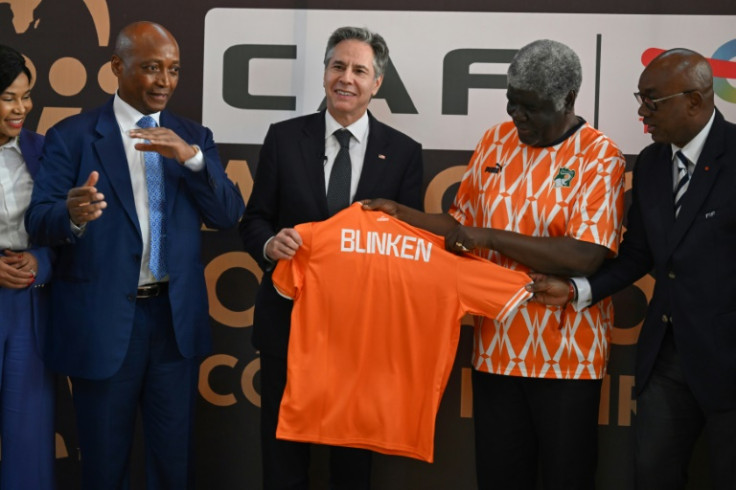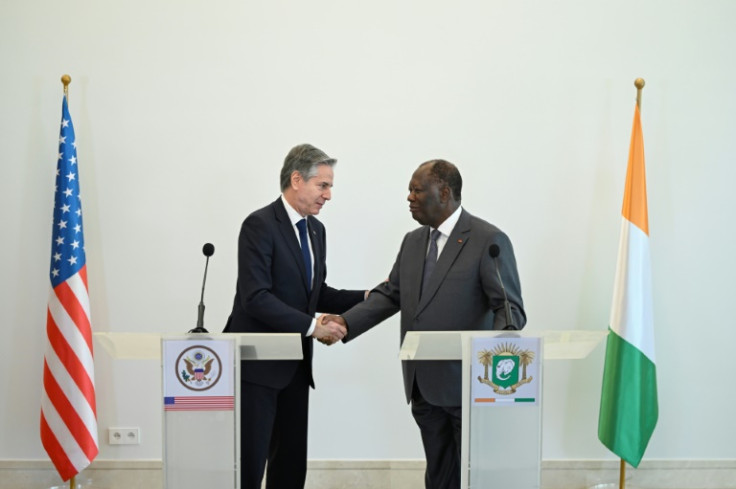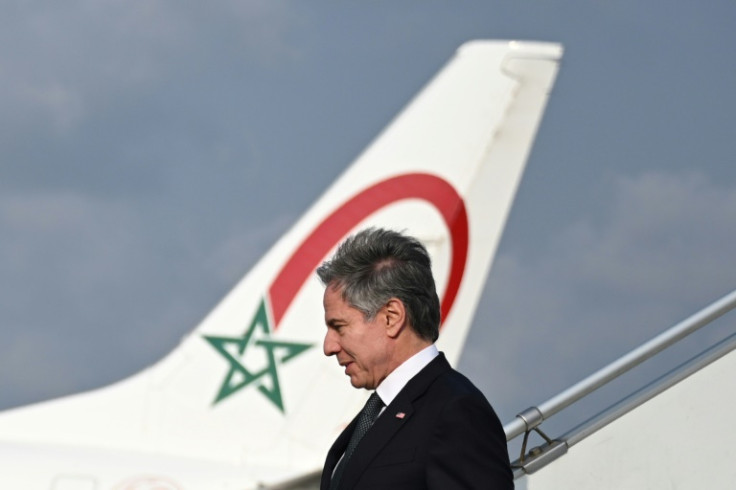
US Secretary of State Antony Blinken sought Tuesday to reverse West Africa's democratic decline through talks with the presidents of two key partners, Nigeria and Ivory Coast, as he called for the fight against extremism to go beyond weapons.
As Russia and China make inroads in the fragile region and nearly a year after the military toppled Niger's democratic government, Blinken offered expanded US security assistance but said there needed to be a "comprehensive approach".
The effort means "working with local communities in a partnership, demonstrating the security forces are there, first and foremost, to protect them and to support their needs," Blinken said in the Nigerian capital Abuja.
Blinken met with Nigerian President Bola Ahmed Tinubu, who was elected last year, and praised his economic reforms, while acknowledging that some moves, such as slashing fuel subsidies would create "pain" in the short term.
Earlier in the day in Abidjan, he praised Ivorian President Alassane Ouattara's plan for economic investment to combat extremism in northern areas bordering Mali and Burkina Faso.
"I think that can serve as a very powerful model for other countries," Blinken said.
Ivory Coast has not experienced a major terrorist attack for some two years, despite its troubled neighbourhood.
Ivory Coast, like its Gulf of Guinea coastal neighbours, Togo, Ghana and Benin, is wary of jihadist conflicts spilling from the Sahel over the region's northern borders.
Blinken said the United States would provide an additional $45 million to West African nations as part of a plan to battle instability, bringing total funding under the year-old programme to nearly $300 million.
Ouattara expressed appreciation for US assistance and voiced alarm over a spate of coups in West Africa.
"Like the United States, we are very committed to democracy and justice," he said, promising that his government would do "everything possible to improve people's day-to-day lives."
Nigeria is not known for a similarly nuanced approach on extremism, and the United States has welcomed Tinubu's call for an inquiry after a recent Nigerian army drone strike killed 85 civilians by mistake.
Blinken said that the United States was committed to being a "strong security partner for Nigeria".
Nigeria and Ivory Coast have largely stood by the United States -- as has another key partner, Kenya -- despite unease in much of the continent over the Western focus on arming Ukraine and, more recently, US support for Israel in its war with Hamas.
Their stance stands in contrast with another heavyweight, South Africa, which the United States has accused of allowing arms shipments to Russia and which most recently annoyed Washington by bringing a genocide case against Israel before the International Court of Justice.
He has sought to showcase a softer side during his trip.
On Monday, he attended a critical football match in the Africa Cup of Nations between Ivory Coast and Equatorial Guinea, when his hosts gifted him an Ivorian orange jersey bearing his name.
US President Joe Biden failed to live up to a promise -- made to African leaders who visited Washington in late 2022 -- to travel to the continent in 2023.
Blinken, who has been occupied by the Middle East crisis, is making his first trip to sub-Saharan Africa in 10 months.
On his last visit to the region, he travelled to Niger to bolster the elected president, Mohamed Bazoum.
Four months later, the army deposed Bazoum.
Blinken praised the stances of both Ivory Coast and Nigeria and said that the United States would not recognise the coup, although he welcomed mediation efforts by West African nations.
The coup leaders threw out troops from former colonial power France but have allowed the presence of some 1,000 US troops, who use Niger's desert as a base for drones in the fight against jihadists.
The coup leaders, however, have also moved closer to Russia, whose Wagner mercenaries are already involved in Mali, Central African Republic and, allegedly, Burkina Faso.
In Abuja, Blinken said that countries that partner with the Wagner Group see their problems grow "worse and worse" with greater "exploitation of people and resources".









